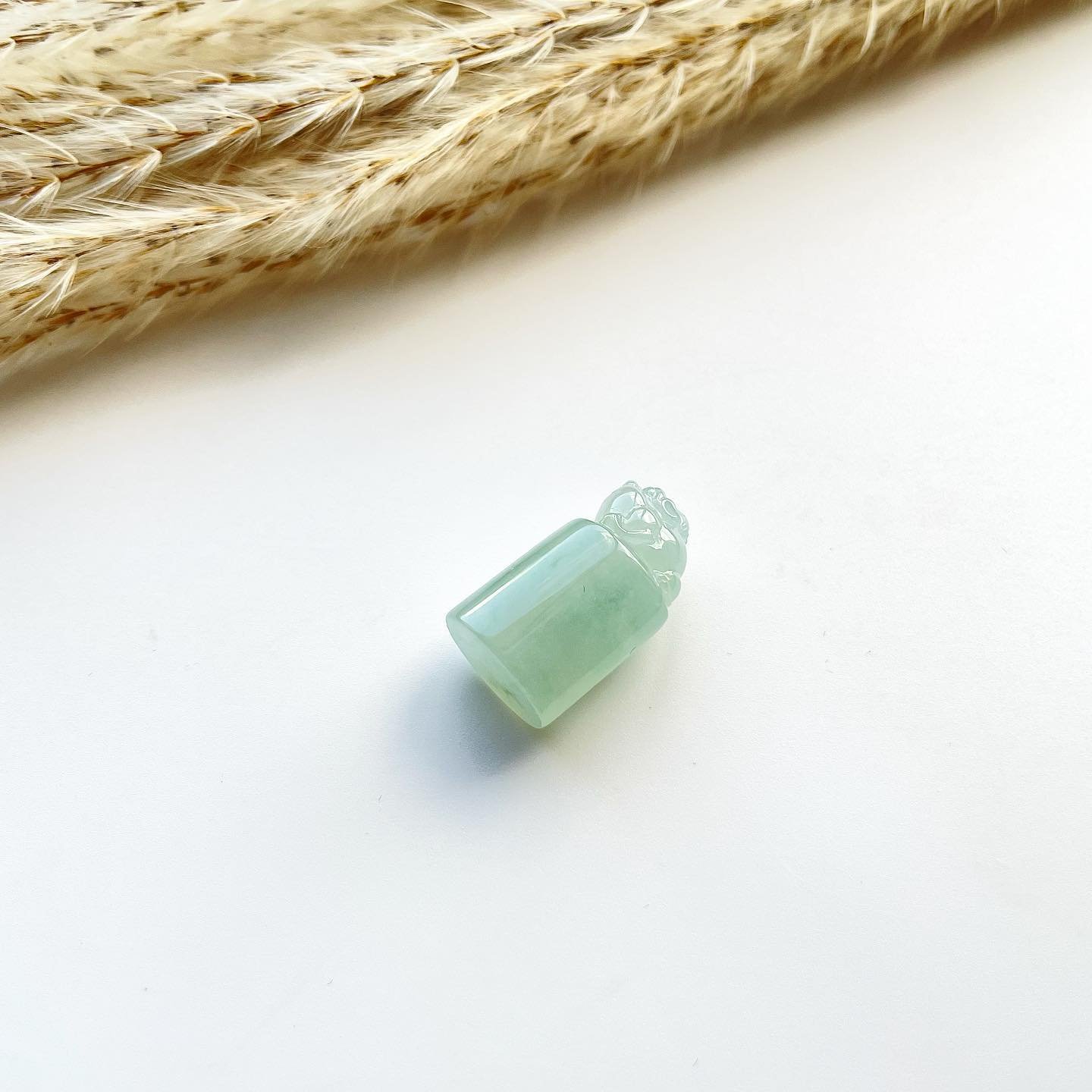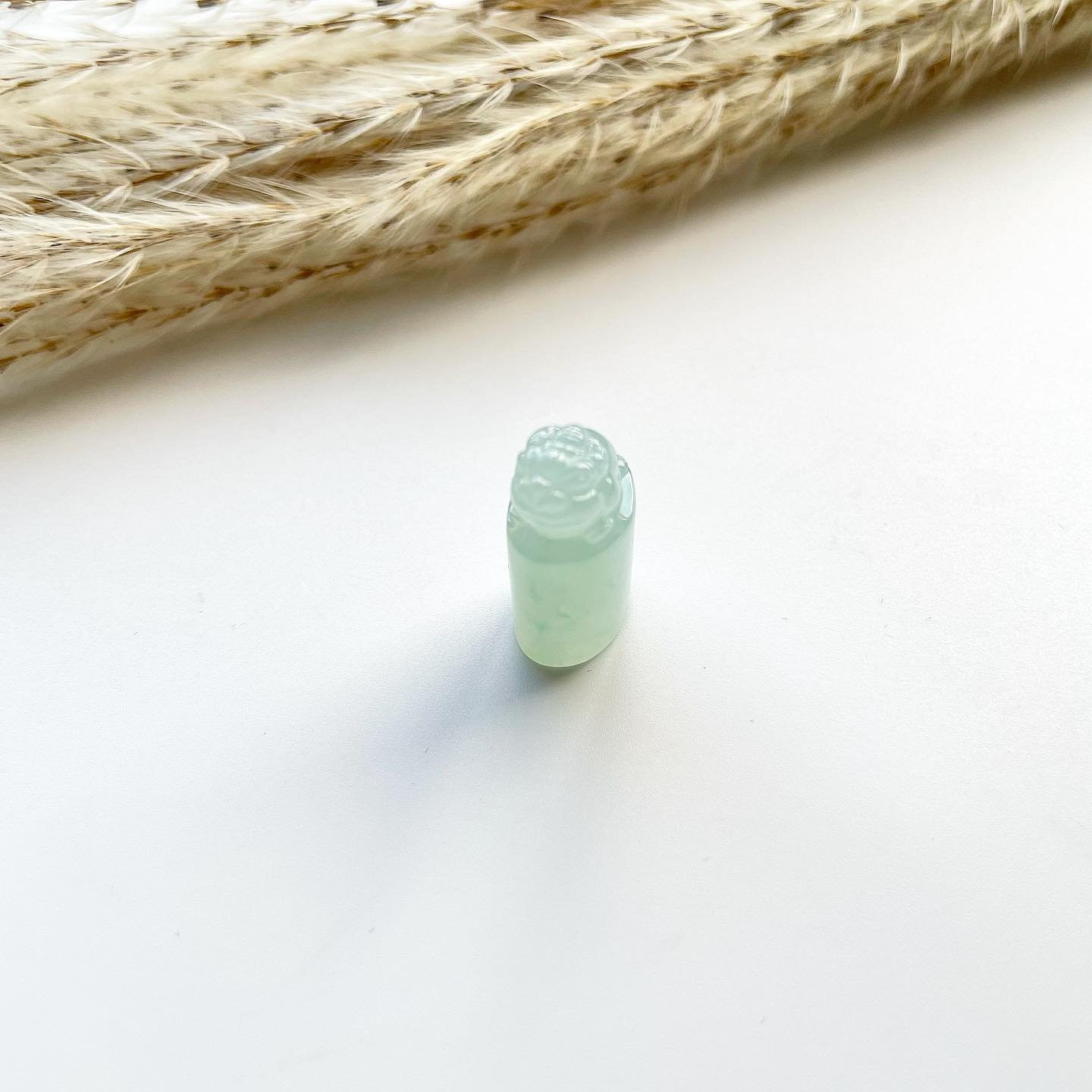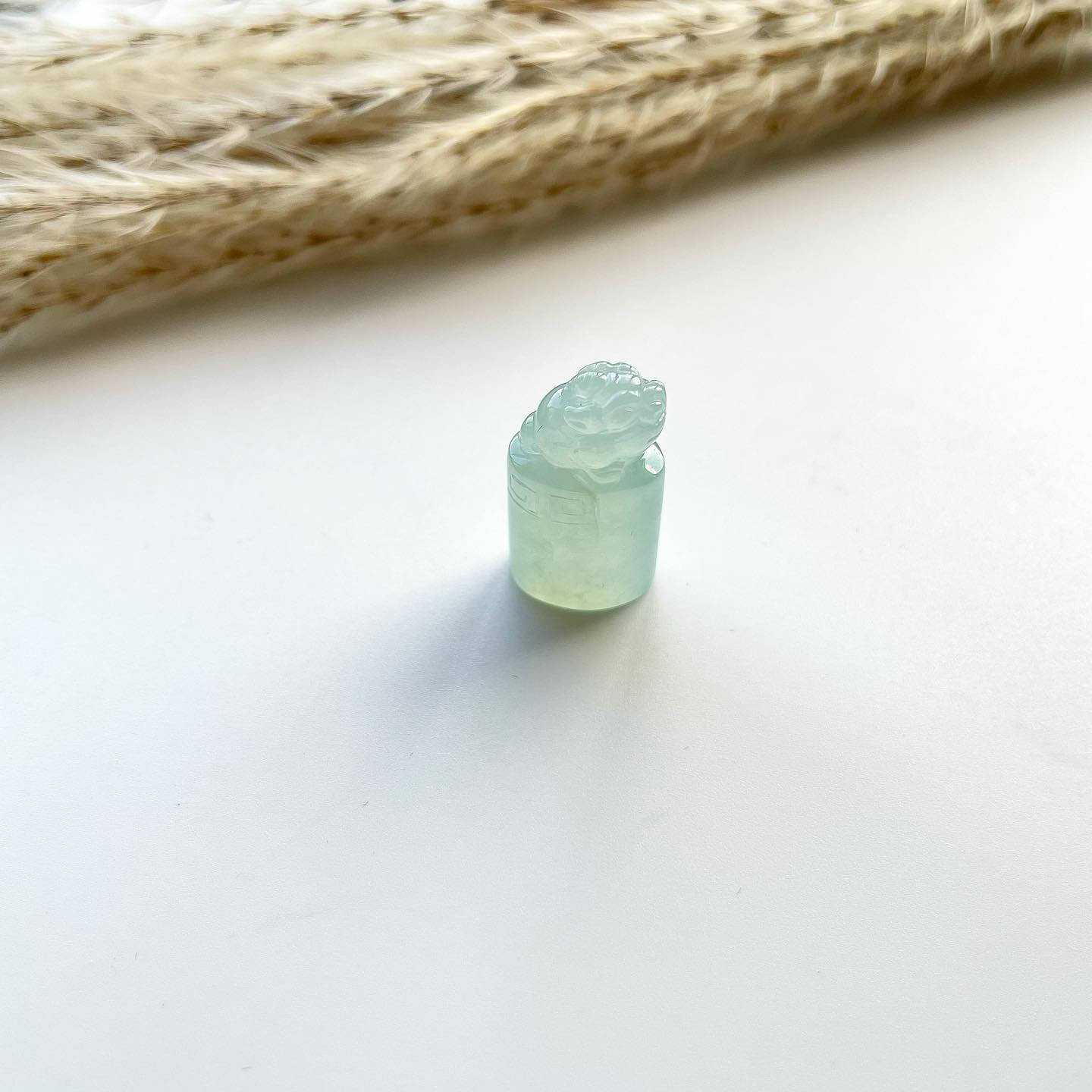



In Japan, seals, referred to as inkan (印鑑) or hanko (判子), have historically been used to identify individuals involved in government and trading from ancient times. The Japanese emperors, shōguns, and samurai had their personal seals pressed onto edicts and other public documents to show authenticity and authority.
A very special piece carved with wealth toad and is in highly translucent jadeite with fine grains. The colour is a unique teal greenish.
Stone: Natural Jadeite (Type A)
Origin: Burma
Translucency: Highly Translucent
Size: 23.1 x 13.1 x 9.5mm
Design: Stamp
Colour: Icy blue green
In Japan, seals, referred to as inkan (印鑑) or hanko (判子), have historically been used to identify individuals involved in government and trading from ancient times. The Japanese emperors, shōguns, and samurai had their personal seals pressed onto edicts and other public documents to show authenticity and authority.
A very special piece carved with wealth toad and is in highly translucent jadeite with fine grains. The colour is a unique teal greenish.
Stone: Natural Jadeite (Type A)
Origin: Burma
Translucency: Highly Translucent
Size: 23.1 x 13.1 x 9.5mm
Design: Stamp
Colour: Icy blue green